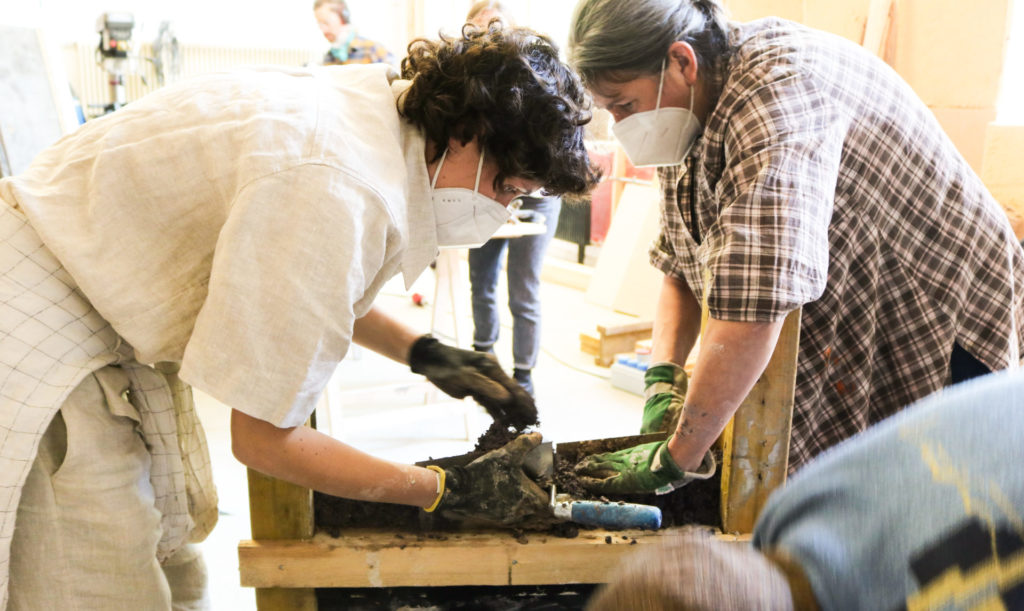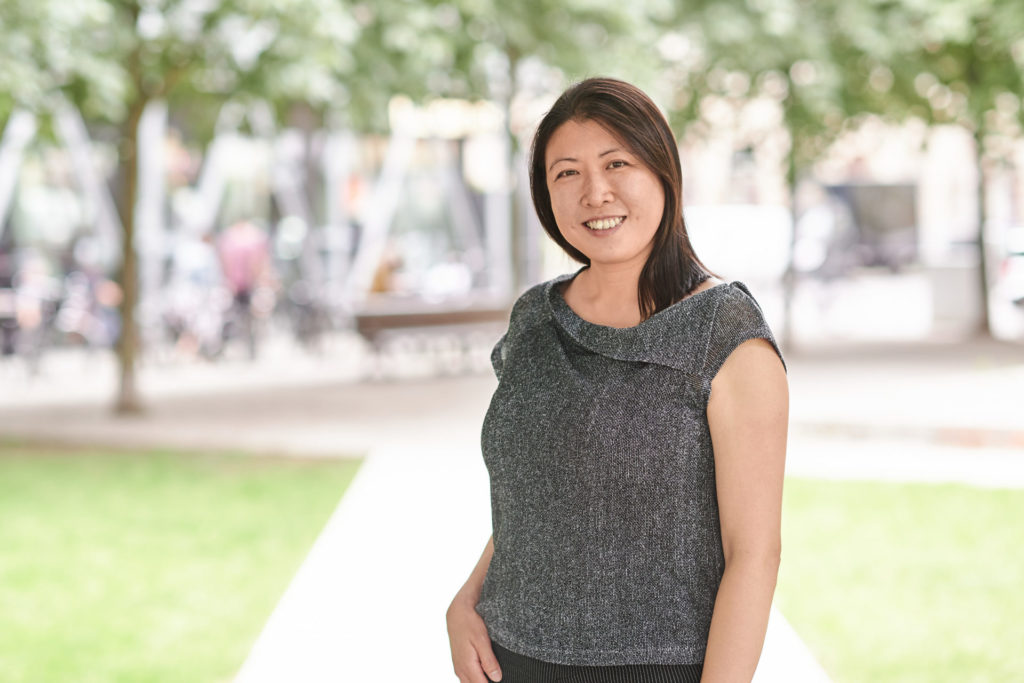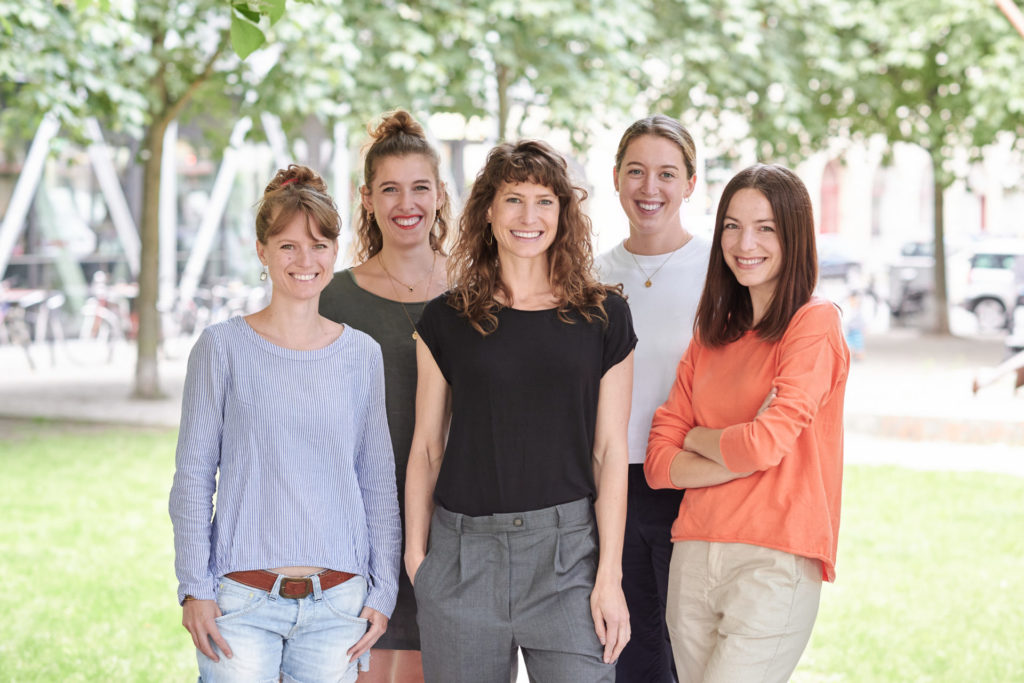Circular Together Berlin: Growing the Circular Economy Ecosystem
The concept of a circular economy, while originating at least a few decades ago, has only in recent years begun to gain popular traction. The idea of creating an economic system in which the resources that we do need to use are repurposed and reused, instead of becoming waste, has become ever more prescient in the face of looming climate and ecological crises.

In fact, there are already elements in our current economy that consist of circular principles (think farms that utilise treated human waste as fertiliser for future crop cycles). Yet these elements are the exception and not the rule. Throughout 2018, for example, the average person living in Germany generated 6,863kg of waste – an amount roughly the same weight as a T-Rex.
Although Germany is a world leader in recycling, with almost ⅔ of its waste collected for recycling or composting, there is scepticism that not all that is collected is actually recycled, with a not insignificant degree of incineration, landfill and ‘downcycling’ into inferior products hidden within its statistics.
It’s clear that redesigning our products and systems to remove waste before we create it would be a more sustainable alternative to any of our other current options.
The Circular Together incubator
At Impact Hub Berlin, we tackle problems by building consortiums of experts and encouraging them to innovate. We knew from our experience in impact startup incubation that partnerships and networks are crucial to a venture’s success. For those working on circular economy solutions, which require systems thinking and Big Bold Plans, they would be even more so.
‘Circular Together’ is what we called our new incubator, kicking it off at the end of 2020 – a year in which the necessity to collectively solve problems became more apparent than ever. We pulled together the expertise we had on our team, and brought in a high level advisory committee to help us shape the challenges and programme content, and to select the right ventures.
This dream team consisted of Marie Asano of the European Circular Bioeconomy Fund; Marianne Kuhlmann, co-founder of Circularity; Siegfried Behrendt at the Institute for Future Studies, and Michael Braungart, the academic considered the father of the ‘cradle to cradle’ concept.
Our aim was to find Berlin’s most promising innovations that are working towards circular production and consumption – ensuring sustainability and profitability without compromising on convenience and affordability. Also key was the ventures’ potential to create meaningful partnerships allowing them to rapidly scale their impact. After weeks of outreach and scouting, we selected the teams to take part in our pilot cohort.
The Circular Together Ventures
ARC Farms – known to our team after their participation in our inaugural Feeding the City programme – joined Circular Together having pivoted their business model. These experts in aquaponics – a concept that enables the production of plants and fish in one unit, while reducing water – have subsequently added a social element to their impact model.
Their ‘micro vertical farms’ use the nutrient-rich water and waste created by fish to grow food within a circular ecosystem. ARC Farms are now piloting deploying a ‘farm’ in a residential home for older citizens, providing activity and stimulation for the residents. The first prototype is currently in operation in Berlin’s Wedding district.

The team was joined in our first cohort by CEARCH, an early-stage venture created by Liwah Wong. The aim of the venture is to create a web and knowledge management tool to support circular economy research. The CEARCH platform accumulates circular economy-focused ‘grey’ literature – referring to accredited research published outside the traditional commercial and academic channels. In doing so, it could make a huge step towards expanding knowledge on this vital topic, for inclusion in reports like those of the Intergovernmental Panel on Climate Change (IPCC).
Our committee was impressed by the venture’s potential for large scale impact. Promisingly, CEARCH is currently in negotiation with a large university that is interested in supporting the technical development of the platform and becoming its first customer.

Last but definitely not least, the award-winning team from rrreefs have also made great progress since arriving in Berlin for the Circular Together programme. Founded by two scientists, rrreefs create artificial coral reefs that aim to help restore natural underwater ecosystems. Their clay-made, 3D-printed building blocks encourage coral to grow on them, with the aim of restoring reefs around the world that have been shockingly damaged by climate change.
The circular part? The bricks are all made sustainably using clay that can return to a natural ecosystem. rrreefs aim is also to bring back biodiversity, restore coastal protection and empower local communities in the process. After forming a partnership with Corales de Paz, the team are currently deploying 260 bricks to Colombia’s coasts.
Are you a Berlin-based circular economy innovator? Then perhaps you want to join us in our new space, a sustainably designed 3,500m2 home for impact innovation in Berlin, with maker spaces, innovation labs and access to our global network. And make sure to sign up for our newsletter and be the first to hear when applications reopen for Circular Together.